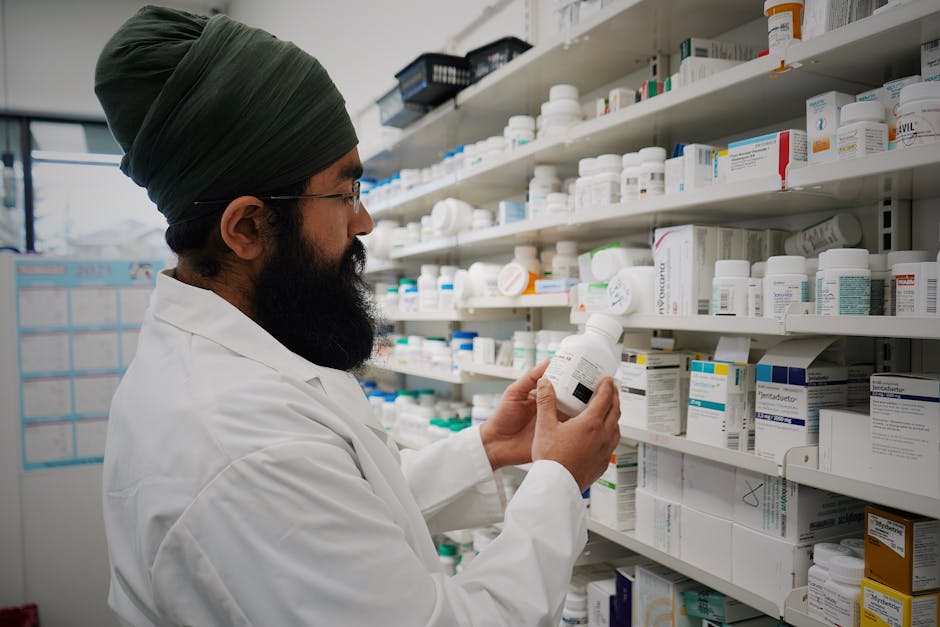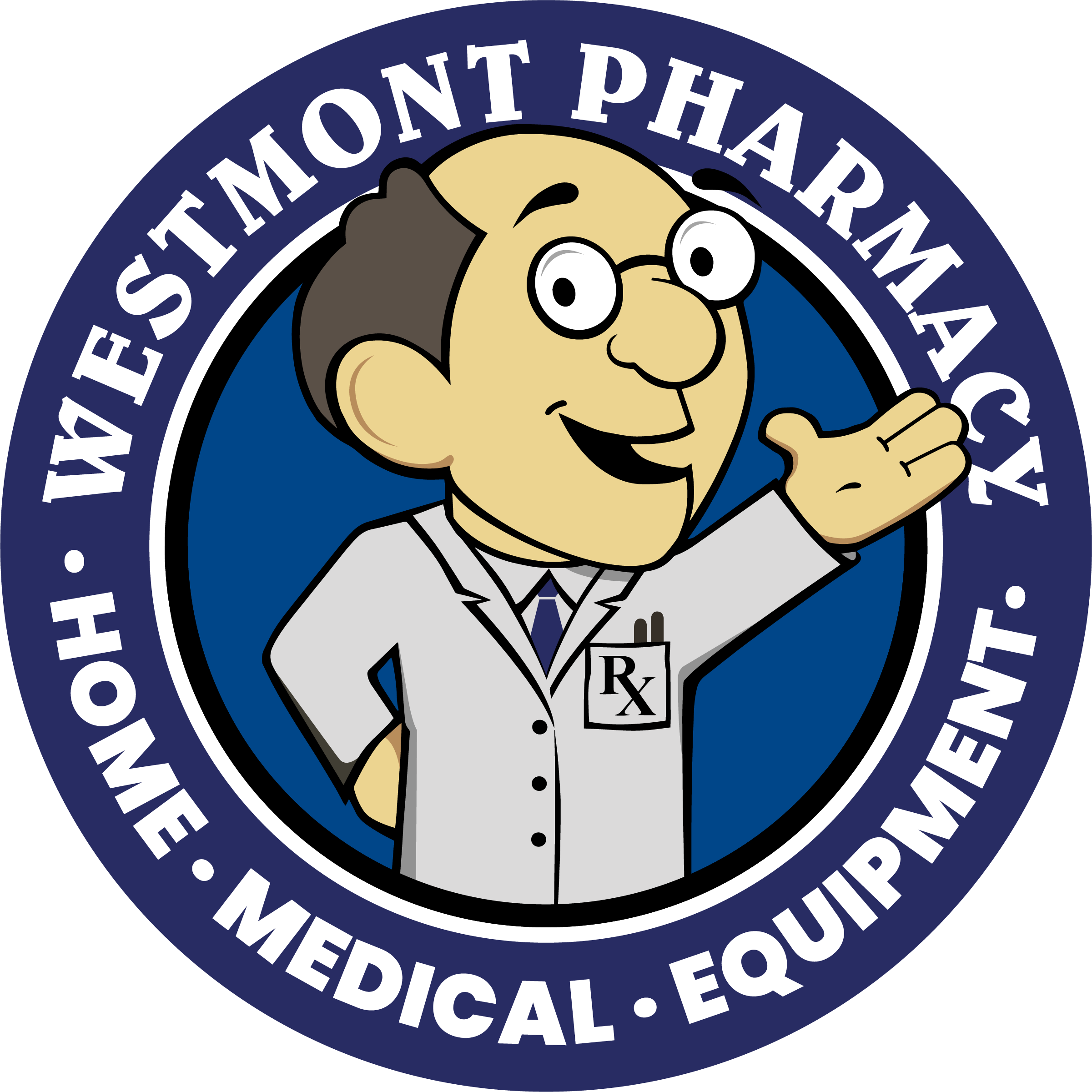How to Understand Prescription Compounding in 5 Easy-to-Follow Steps

Prescription compounding is a pharmaceutical practice that customizes medication to meet individual needs. Whether it’s adjusting the dosage strength, altering the delivery form, or removing allergens, compounding offers personalized medication solutions unavailable in prepackaged, big-box options.
By tailoring medications to specific requirements, compounding pharmacies provide a level of care that can improve treatment effectiveness and patient satisfaction. For those frustrated with standard pharmacy solutions, understanding the benefits of custom medication can be life-changing.
My name is Sazan Sylejmani, and as an experienced Pharmacy Manager, my work in prescription compounding aligns with the needs of patients seeking bespoke healthcare solutions.
Prescription compounding word roundup:
– how prescribers can write compounded prescriptions
– what are compounded prescriptions
What is Prescription Compounding?
Prescription compounding is all about crafting custom-made formulations to meet unique patient needs. Unlike mass-produced medications, compounded drugs are custom specifically for you. This means they can be adjusted in ways that standard medications can’t, like changing the dosage form or removing ingredients that might cause allergies.
Custom-Made Formulations
Imagine needing a medication that doesn’t exist in a form you can easily take. Maybe you have trouble swallowing pills, or perhaps you’re allergic to a dye used in the standard version. Compounding pharmacies can create a liquid or a dye-free version just for you. This level of customization is a game-changer for many patients.
Unique Patient Needs
Every patient is different, and so are their medical needs. For example, a child might need a smaller dose than what’s available on the market, or a pet might need a medication in a tasty flavor to ensure they take it. Compounding allows pharmacists to work with doctors to create the perfect solution for each individual case.
Non-FDA Approved
It’s important to know that compounded medications are not FDA-approved in the same way as mass-produced drugs. This doesn’t mean they’re unsafe, but it does mean they haven’t gone through the same testing process. Instead, they are crafted based on FDA-approved ingredients and the expertise of licensed pharmacists. They must follow strict quality standards to ensure safety and effectiveness.
Compounding pharmacies are regulated by state boards and must adhere to guidelines set by organizations like the United States Pharmacopeia (USP). They use pharmaceutical-grade ingredients and advanced techniques to ensure each formulation meets high standards.
Prescription compounding provides a personalized approach to healthcare, filling the gaps that standard medications sometimes leave. It’s about making sure that everyone gets the treatment they need, in the form that works best for them.
Why Choose Compounded Medications?
Choosing compounded medications can be a smart move for several reasons, especially if you need something beyond what off-the-shelf options offer. Let’s break down why you might opt for these custom solutions.
Allergy-Free Formulations
One of the biggest perks of prescription compounding is the ability to create allergy-free formulations. Many people are sensitive to dyes, preservatives, or other inactive ingredients commonly found in mass-produced medications. Compounding allows pharmacists to remove these allergens, crafting a medication that’s safe and effective for you. For instance, patients with allergies to sulfites can request a compounded version without them, reducing the risk of adverse reactions.
Dosage Customization
Everyone’s body is unique, and sometimes the standard dosages just don’t cut it. Whether you’re a child who needs a smaller dose or an elderly person requiring a specific strength, compounded medications can be custom to match your exact needs. This customization can also apply to weight loss medications like Mounjaro or its generic, Tirzepatide, which can be compounded to accommodate precise dosages for better results.
Drug Shortages
Drug shortages are a real issue, even in hospitals. When essential medications aren’t available, compounding pharmacies step in to fill the gap. They can produce medications that are out of stock commercially, ensuring that treatments continue without interruption. This was evident during past shortages of life-saving drugs, where hospitals turned to compounding pharmacies to maintain patient care.
In summary, compounded medications offer a level of personalization that standard medications can’t, whether it’s removing allergens, adjusting dosages, or overcoming shortages. This makes them an invaluable option for those with specific health needs.
The Compounding Process Explained
Understanding how prescription compounding works can explain the process and give you confidence in these custom-made medications. Here’s a simple breakdown of how it all comes together.
Mixing Ingredients
The heart of compounding is mixing ingredients to create a medication custom just for you. Unlike mass-produced drugs, which come in standard doses and forms, compounded medications are crafted to meet individual needs. This involves carefully measuring and combining active and inactive ingredients. For example, if you’re using a weight loss medication like Mounjaro or its generic, Tirzepatide, a compounding pharmacist can adjust the dosage to perfectly suit your body’s requirements.
Licensed Pharmacists
Compounding isn’t just about mixing ingredients; it’s a precise science that requires expertise. That’s where licensed pharmacists come in. These professionals have specialized training in compounding, ensuring that your medication is both safe and effective. They follow strict protocols to prevent contamination and ensure the right strength and purity of your medication. Training and oversight are crucial, as small errors in the compounding process can lead to significant differences in drug performance.
Quality Standards
Quality is non-negotiable in compounding. Compounding pharmacies must adhere to stringent standards set by organizations like the United States Pharmacopeial Convention (USP). These standards help prevent issues like microbial contamination and ensure that the compounded medication is stable and effective. For instance, USP General Chapter <795> provides guidelines for non-sterile preparations, while <797> focuses on sterile ones, ensuring that every step of the process meets high-quality benchmarks.
The compounding process is a blend of art and science, carried out by skilled pharmacists who follow rigorous quality standards. This ensures that the medication you receive is custom to your specific needs, safe, and effective.

Next, we’ll explore the different types of compounded medications available and how they can cater to various health needs.
Types of Compounded Medications
Compounded medications come in a variety of forms, each designed to meet unique patient needs. Understanding the types of compounded medications can help you make informed decisions about your healthcare options.
Sterile Compounds
Sterile compounding is crucial for medications that must be free from microorganisms. These are typically used for injectables, implants, and eye drops. Sterile compounds require a clean-room environment and aseptic techniques to ensure safety. For example, hospitals often rely on sterile compounded medications during drug shortages to maintain patient care without interruption.
Non-Sterile Compounds
On the other hand, non-sterile compounding involves creating medications that don’t require a sterile environment. These are usually oral or topical formulations like capsules, creams, and ointments. Non-sterile compounding is often used to create allergy-free formulations by removing preservatives or dyes that might cause reactions.
Dosage Forms
Compounding allows for a wide range of dosage forms, which can be custom to patient preferences and needs. Here are some common forms:
- Liquids: Ideal for children or those who have trouble swallowing pills.
- Capsules: Customizable in strength and ingredients, perfect for precise dosing.
- Suppositories: Useful when oral administration isn’t possible.
- Transdermal Gels (TDG): Applied to the skin, often used for pain management.
A compounding pharmacy can also create custom flavors to make medications more palatable, which is especially helpful for children or pets. For instance, a flavored liquid form of a medication can encourage a child to take their medicine without fuss.
In summary, the flexibility of compounded medications allows for personalized treatment options. Whether it’s adjusting the dosage of a weight loss shot like Tirzepatide or creating a pet-friendly medication, compounding caters to diverse healthcare needs.
Next, we’ll address some frequently asked questions about prescription compounding, including potential risks and insurance considerations.
Frequently Asked Questions about Prescription Compounding
What are the risks of compounded drugs?
Compounded drugs can be a lifeline for patients with unique needs, but they come with risks. Contamination is a significant concern, especially with sterile compounds. Poor compounding practices can lead to serious drug quality issues, such as contamination with bacteria or incorrect dosage, which may result in severe health risks or even death. For example, from 2001 to 2007, there were outbreaks of infections linked to compounded drugs, some of which were fatal.
Quality issues also arise because compounded drugs are not FDA-approved. This means they haven’t undergone the rigorous testing for safety and effectiveness that FDA-approved drugs have. It’s crucial to use compounded drugs only when necessary and to ensure they are prepared by reputable professionals following strict guidelines.
Are compounded drugs covered by insurance?
Insurance coverage for compounded drugs varies widely. Some insurance plans may cover them, but many do not. It’s essential to check with your insurance provider to understand if they offer reimbursement for compounded medications.
Prescription weight loss medications like Mounjaro and Zepbound are often not covered under standard insurance plans, though trends suggest more employers are beginning to include these in their health plans. However, the high costs of these medications can be a barrier, so understanding your specific coverage is key.
How to find a reliable compounding pharmacy?
Finding a trustworthy compounding pharmacy is crucial for ensuring the quality and safety of your medications. Look for accreditation from reputable organizations like the Pharmacy Compounding Accreditation Board. Accreditation means the pharmacy has met high standards for quality and safety.
State regulations also play a role in overseeing compounding pharmacies. Generally, state boards of pharmacy are responsible for the day-to-day oversight of these facilities. However, facilities registered as outsourcing facilities with the FDA are subject to more stringent inspections and quality standards.
When choosing a compounding pharmacy, consider its reputation and whether it follows best practices for quality and safety. This can help mitigate the risks associated with compounded drugs and ensure you receive the best possible care.
Conclusion
At Westmont Pharmacy, we pride ourselves on being a trusted healthcare provider in Westmont, IL. Since our establishment in 1930, we’ve been dedicated to offering personalized care and custom solutions to meet the unique needs of our community.
Prescription compounding is at the heart of what we do. Our experienced pharmacists work closely with healthcare providers to create custom medications that address individual patient needs. Whether it’s developing an allergy-free formulation or adjusting a medication’s dosage form, we’re here to ensure that you receive the best possible care.
Our commitment to quality is unwavering. We adhere to strict guidelines and maintain high standards to ensure the safety and efficacy of our compounded medications. Our pharmacists are trained in the latest compounding techniques and are always ready to answer any questions you might have about your medications.
We understand that navigating compounded medications can be daunting, but you don’t have to do it alone. At Westmont Pharmacy, we’re here to guide you every step of the way, providing the support and expertise you need to make informed decisions about your health.
For personalized care and custom medication solutions, trust Westmont Pharmacy to be your partner in health. Visit us today to learn more about how our compounding services can benefit you and your loved ones.

